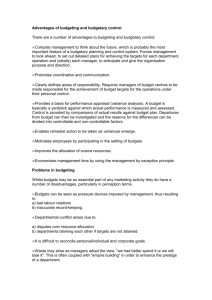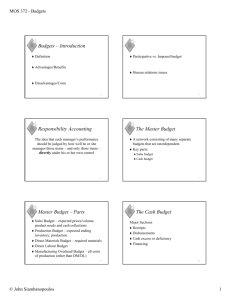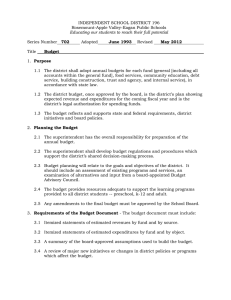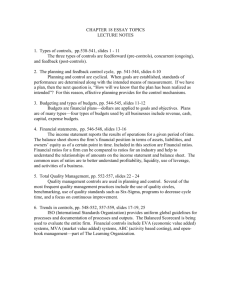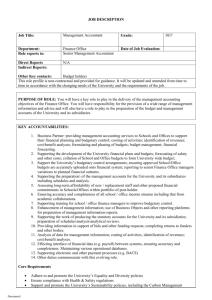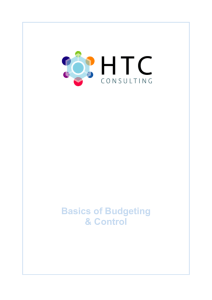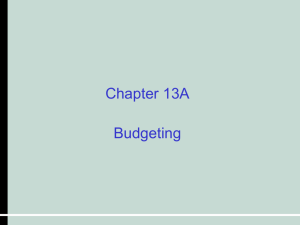Budget preparation and type
advertisement
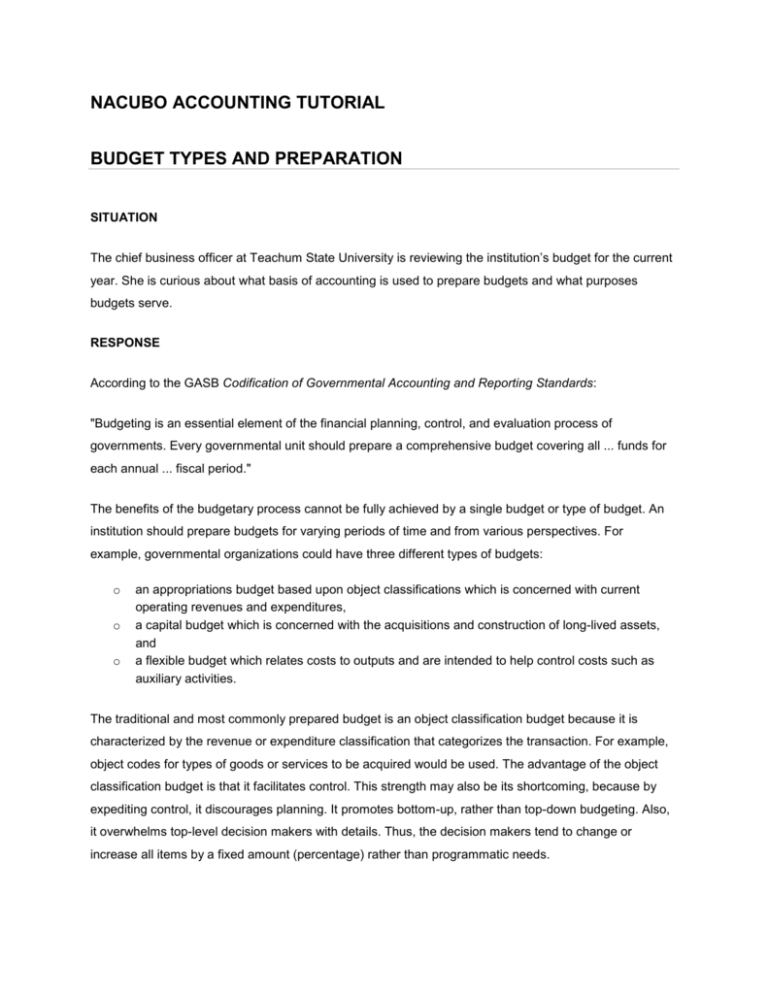
NACUBO ACCOUNTING TUTORIAL BUDGET TYPES AND PREPARATION SITUATION The chief business officer at Teachum State University is reviewing the institution’s budget for the current year. She is curious about what basis of accounting is used to prepare budgets and what purposes budgets serve. RESPONSE According to the GASB Codification of Governmental Accounting and Reporting Standards: "Budgeting is an essential element of the financial planning, control, and evaluation process of governments. Every governmental unit should prepare a comprehensive budget covering all ... funds for each annual ... fiscal period." The benefits of the budgetary process cannot be fully achieved by a single budget or type of budget. An institution should prepare budgets for varying periods of time and from various perspectives. For example, governmental organizations could have three different types of budgets: o o o an appropriations budget based upon object classifications which is concerned with current operating revenues and expenditures, a capital budget which is concerned with the acquisitions and construction of long-lived assets, and a flexible budget which relates costs to outputs and are intended to help control costs such as auxiliary activities. The traditional and most commonly prepared budget is an object classification budget because it is characterized by the revenue or expenditure classification that categorizes the transaction. For example, object codes for types of goods or services to be acquired would be used. The advantage of the object classification budget is that it facilitates control. This strength may also be its shortcoming, because by expediting control, it discourages planning. It promotes bottom-up, rather than top-down budgeting. Also, it overwhelms top-level decision makers with details. Thus, the decision makers tend to change or increase all items by a fixed amount (percentage) rather than programmatic needs. Due to the disadvantages of the classified object budget, many institutions have begun to adopt performance budgets. Performance budgets focus on measurable units of efforts, services, and accomplishments. They are developed so that expenditures are associated directly with the estimated units of outputs or outcomes. Comprehensive performance budgets require the preparer to consider specific objectives, alternate means to achieve them, workload indicators, and cost-benefit analyses. Despite the importance of budgets and their influence on financial reporting, GASB establishes generally accepted accounting principles only for financial reporting, not for budgeting. Budgetary principles are established by the institution or by the primary government that supervises the institution.
